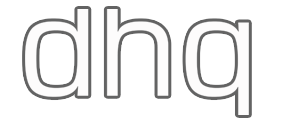Determining Value for Digital Humanities Tools: Report on a Survey
of Tool Developers Susan Schreibman, Digital Humanities Observatory; Ann M. Hanlon, Marquette University
Abstract
[en]
While the purpose and direction of tools and tool development for the Digital
Humanities have been debated in various forums, the value of tool development as a
scholarly activity has seen little discussion. As a way of filling this gap, the
authors conducted an online survey of developers of digital humanities tools in March
2008. The survey focused on their perceptions of their work, how they felt their tool
development fit into a structure of academic rewards, and the value of tool
development as a scholarly pursuit. Survey results indicate that tool development is
indeed considered a scholarly activity by developers, but recognition of this work
and rewards for it lag behind rewards for traditional scholarly pursuits (such as
journal articles and book publication). This paper presents a summary of the results
of the survey, ending with some suggestions for further research.
History, People, and Informatics: A Conversation between Sharon
Irish and Wendy PlotkinSharon Irish, Interim Director, Community Informatics Initiative, Graduate School of Library and Information Science, University of Illinois, Urbana-Champaign; Wendy Plotkin, Editor-in-Chief, H-Urban
Abstract
[en]
This extended interview between founding H-Urban editor Wendy Plotkin and H-Urban
reviews editor Sharon Irish traces the early history of online scholarly
communication via H-Net, H-Urban, and COMM-ORG, informed by Plotkin’s background as a
planner and community activist in the 1970s and 1980s. After work with community
development corporations on the East Coast, Plotkin entered graduate school in urban
history at the University of Illinois at Chicago. During this period in the early
nineties, Plotkin had a job with the Text Encoding Initiative (TEI), and then
collaborated on the development of the forum that became H-Net. In addition to
standards and protocols about new communication technologies, face-to-face
relationships grew out of online exchanges, often with lively disagreements about the
direction of H-Net. Plotkin’s own broadening use of digital tools prompts her
concluding reflections on historians’ continuing need to use the Internet to overcome
physical and intellectual fragmentation, and how the Internet has democratized the
field of history.
Twisty Little Passages Almost All Alike: Applying the FRBR
Model to a Classic Computer GameJerome McDonough, Graduate School of Library and Information Science, University of Illinois at Urbana-Champaign; Matthew Kirschenbaum, Maryland Institute for Technology in the Humanities, University of Maryland; Doug Reside, Maryland Institute for Technology in the Humanities, University of Maryland; Neil Fraistat, Maryland Institute for Technology in the Humanities, University of Maryland; Dennis Jerz, English — New Media Journalism, Seton Hill University
Abstract
[en]
Humanities scholars and librarians both confront questions regarding the
boundaries of texts and the relationships between various editions, translations
and adaptations. The Functional Requirements for Bibliographic Records (FRBR)
Final Report from the International Federation of Library Associations has
provided the library community with a model for addressing these questions in
the bibliographic systems they create. The Preserving Virtual Worlds project has
been investigating FRBR's potential as a model for the description of computer
games and interactive fiction. While FRBR provides an attractive theoretical
model, the complexity of computer games as works makes its application to such
software creations problematic in practice.
A review of Noah Wardrip-Fruin’s Expressive Processing: Digital Fictions, Computer Games, and Software StudiesDoug Reside, University of Maryland, College Park
Abstract
[en]
The need for greater software literacy is a pressing problem, but one
still not universally acknowledged even among those working in new
media and digital humanities. In Expressive Processing, Noah
Wardrip-Fruin makes a compelling case that software studies as a field
is not only an interesting avenue of research for new media
specialists but also should increasingly be a basic activity of
educated citizens in a 21st century democracy.
The New Edition of the Letters of Vincent van Gogh on the
WebArianna Ciula, Independent Scholar
Abstract
[en]
The New Edition of the Letters of Vincent Van Gogh on the
Web is a review of the web edition of the complete authorial
correspondence of the 19th century Dutch painter Vincent Van Gogh published by
the Van Gogh Museum and the Huygens Institute of the Royal Netherlands Academy
of Arts and Sciences in 2009. While the print version, published by Thames
& Hudson in the same year, received ample attention in the specialized
and generalist press, the web edition enjoyed less publicity; this review
considers the added value of the web version.



